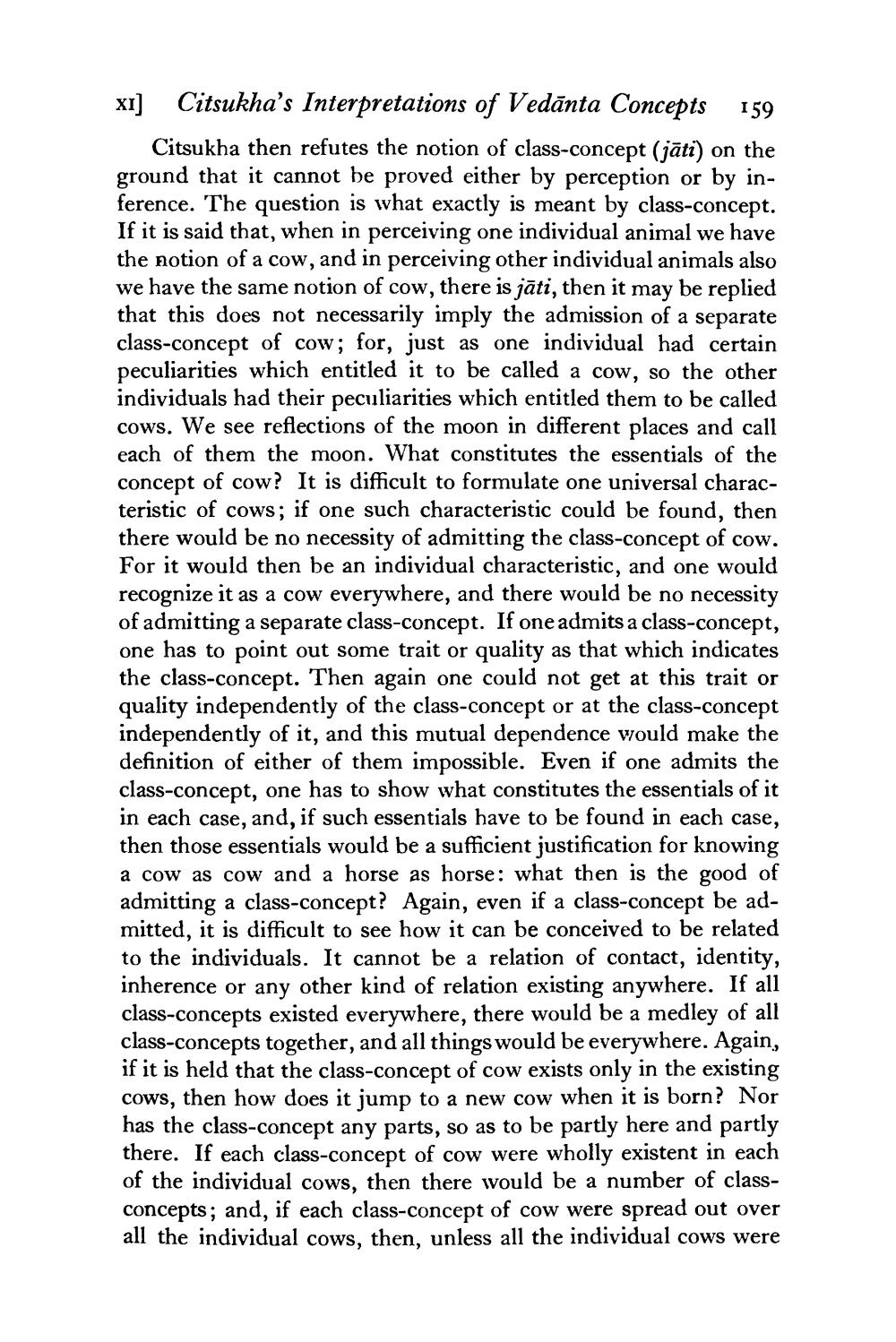________________
Citsukha's Interpretations of Vedanta Concepts
159
Citsukha then refutes the notion of class-concept (jāti) on the ground that it cannot be proved either by perception or by inference. The question is what exactly is meant by class-concept. If it is said that, when in perceiving one individual animal we have the notion of a cow, and in perceiving other individual animals also we have the same notion of cow, there is jāti, then it may be replied that this does not necessarily imply the admission of a separate class-concept of cow; for, just as one individual had certain peculiarities which entitled it to be called a cow, so the other individuals had their peculiarities which entitled them to be called cows. We see reflections of the moon in different places and call each of them the moon. What constitutes the essentials of the concept of cow? It is difficult to formulate one universal characteristic of COWS; if one such characteristic could be found, then there would be no necessity of admitting the class-concept of cow. For it would then be an individual characteristic, and one would recognize it as a cow everywhere, and there would be no necessity of admitting a separate class-concept. If one admits a class-concept, one has to point out some trait or quality as that which indicates the class-concept. Then again one could not get at this trait or quality independently of the class-concept or at the class-concept independently of it, and this mutual dependence would make the definition of either of them impossible. Even if one admits the class-concept, one has to show what constitutes the essentials of it in each case, and, if such essentials have to be found in each case, then those essentials would be a sufficient justification for knowing a cow as cow and a horse as horse: what then is the good of admitting a class-concept? Again, even if a class-concept be admitted, it is difficult to see how it can be conceived to be related to the individuals. It cannot be a relation of contact, identity, inherence or any other kind of relation existing anywhere. If all class-concepts existed everywhere, there would be a medley of all class-concepts together, and all things would be everywhere. Again, if it is held that the class-concept of cow exists only in the existing cows, then how does it jump to a new cow when it is born? Nor has the class-concept any parts, so as to be partly here and partly there. If each class-concept of cow were wholly existent in each of the individual cows, then there would be a number of classconcepts; and, if each class-concept of cow were spread out over all the individual cows, then, unless all the individual cows were
XI]




